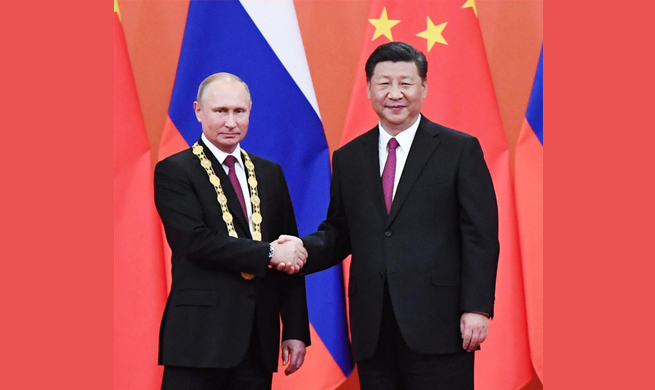GABORONE, June 8 (Xinhua) -- Botswana's economic growth is expected to rebound supported by higher diamond sales, said a statement issued by International Monetary Fund (IMF) on Friday.
The statement issued after IMF completed a two weeks visit to Botswana from May 22 to June 6 on a consultation mission
According to the statement, Botswana's GDP growth decelerated to 2.4 percent in 2017 owing to declines in copper and nickel production and lower activity in construction and trade, while the fiscal and external accounts were nearly balanced, inflation was about 3 percent, the exchange rate was stable, the financial sector remained sound and well capitalized, and public debt continued to be low at about 19 percent of GDP.
Enrique Gelbard, the IMF Mission Chief said the spring back will be further supported by a stable macroeconomic environment, and higher government spending.
"While the government balance is expected to deteriorate owing to lower revenues from the Southern Africa Customs Union and higher fiscal outlays, the deficit should be manageable given high levels of savings and foreign exchange reserves," said Glebard.
He said in the medium-term, and in line with their track record of prudent policies, Botswana authorities aim at achieving a fiscal surplus.
"To this end, it will be necessary to undertake revenue and expenditure reforms alongside policies to reduce income inequality," he said.
"The financial sector can be further developed to intermediate additional savings and lend to productive sectors by strengthening creditors' rights, improving information on borrowers' creditworthiness, increasing the issuance of government bonds to develop a reliable yield curve, and promoting mobile payments." said the statement.
IMF warned that the diversification and job creation efforts require focus on prompt and bold market friendly reforms that can reduce the costs of doing business, improve skills in the labor force, make the public sector more efficient, privatize key enterprises, and enable competition and entry of firms in sectors with latent comparative advantage.

















